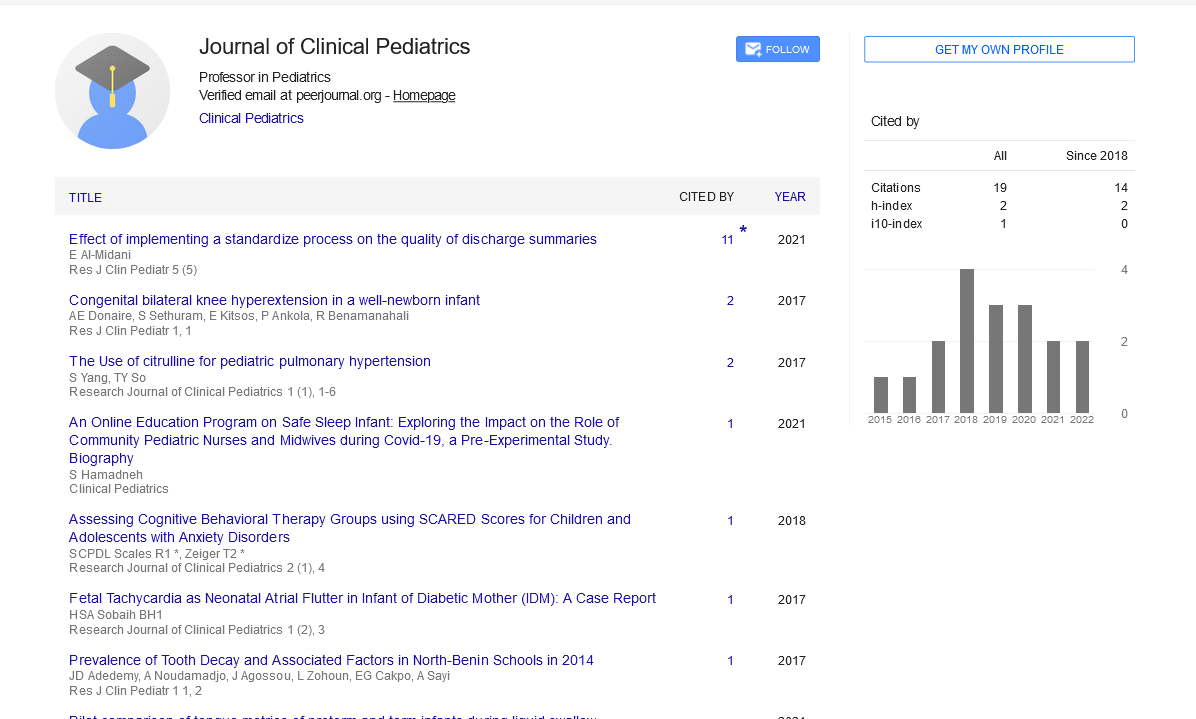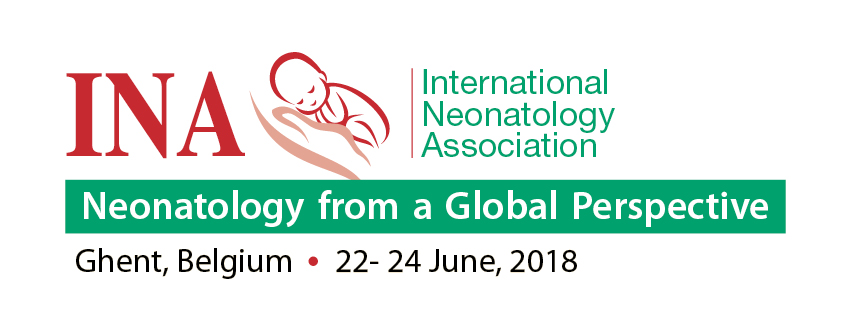Commentary, Res J Clin Pediatr Vol: 7 Issue: 1
Neonatology: Caring for the Most Vulnerable Patients
Andrew Wilson*
1Department of Pediatrics, University in Vancouver, Vancouver, BC V6B 1V9, Canada
*Corresponding Author: Andrew Wilson
Department of Pediatrics, University in
Vancouver, Vancouver, BC V6B 1V9, Canada
E-mail: andrew.wilson@hsr.edu.ca
Received date: 16 February, 2023, Manuscript No. RJCP-23-96075;
Editor assigned date: 20 February, 2023, PreQC No. RJCP-23-96075 (PQ);
Reviewed date: 10 March, 2023, QC No. RJCP-23-96075;
Revised date: 17 April, 2022, Manuscript No. RJCP-23-96075 (R);
Published date: 24 April, 2023, DOI: 10.4172/Rjcp.1000137
Citation: Wilson A (2023) Neonatology: Caring for the Most Vulnerable Patients. Res J Clin Pediatr 7:1.
Description
Neonatology is a specialized branch of pediatrics that focuses on the medical care of newborn infants, particularly those who are premature or critically ill. Neonatologists are highly trained medical professionals who work in neonatal intensive care units (NICUs) and provide specialized care to the most vulnerable patients. This manuscript provides a comprehensive overview of neonatology, including the role of neonatologists, common neonatal conditions, and advanced medical interventions.
Neonatologists are medical doctors who specialize in the diagnosis, treatment, and management of newborns, particularly those who require intensive care. They work closely with other healthcare professionals, including nurses, respiratory therapists, pharmacists, and social workers, to provide comprehensive care to newborns and their families.
Neonatal care involves a range of medical interventions, including respiratory support, nutrition management, monitoring of vital signs, and administration of medications. Neonatologists also play an important role in educating parents and families about their baby's health and care needs, as well as providing emotional support during what can be a challenging time.
Advances in neonatology have led to significant improvements in the survival and long-term outcomes of premature and critically ill newborns. However, neonatal care remains a complex and demanding field, requiring specialized knowledge and skills to provide the best possible outcomes for infants and families.
Role of neonatologists
Neonatologists are medical doctors who specialize in the care of newborn infants, particularly those who are premature or critically ill. They are responsible for managing the care of these infants from birth until they are ready to leave the NICU. Neonatologists work closely with a team of healthcare professionals, including neonatal nurses, respiratory therapists, and nutritionists, to provide the best possible care for their patients.
Common neonatal conditions
Prematurity is one of the most common conditions that neonatologists treat. Premature infants are born before 37 weeks of gestation and may require specialized care in the NICU. Other common conditions that neonatologists treat include respiratory distress syndrome, neonatal jaundice, and sepsis. These conditions can be life-threatening for newborns and require prompt medical intervention.
Advanced medical interventions
Neonatologists use advanced medical interventions to provide lifesaving care to newborn infants. These interventions include mechanical ventilation to support breathing, intravenous medications to support cardiovascular function, and total parenteral nutrition (TPN) to provide essential nutrients to infants who are unable to tolerate feeds. In addition, neonatologists may use advanced imaging techniques such as ultrasound and magnetic resonance imaging (MRI) to diagnose and monitor conditions in newborn infants.
Conclusion
Neonatology is a specialized branch of pediatrics that focuses on the medical care of newborn infants, particularly those who are premature or critically ill. Neonatologists are highly trained medical professionals who work in NICUs and provide specialized care to the most vulnerable patients. Common neonatal conditions include prematurity, respiratory distress syndrome, neonatal jaundice, and sepsis. Advanced medical interventions such as mechanical ventilation, intravenous medications, and TPN are used to provide life-saving care to newborn infants. Early diagnosis and treatment are essential in improving the health and wellbeing of these vulnerable patients.
 Spanish
Spanish  Chinese
Chinese  Russian
Russian  German
German  French
French  Japanese
Japanese  Portuguese
Portuguese  Hindi
Hindi 
